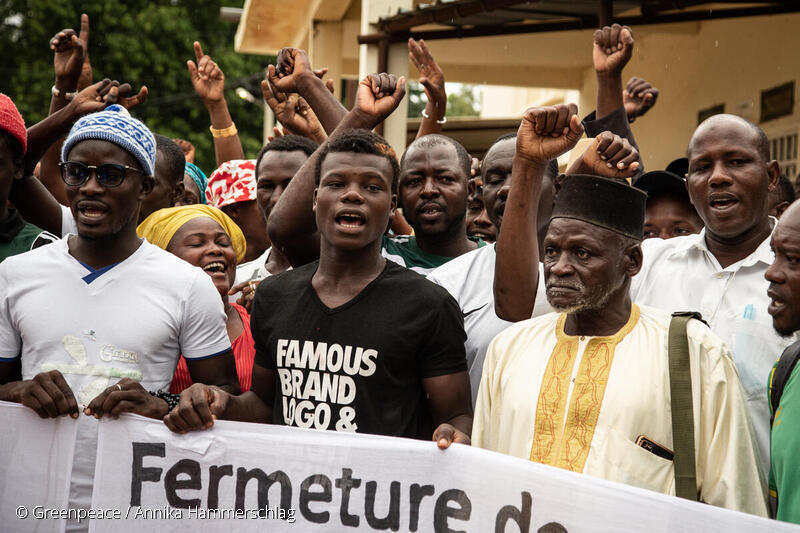Thiès, Senegal – On the second day (6 October) of a historic legal action to shut down a polluting fishmeal factory in the town of Cayar, the High Court of Thiès was shown shocking laboratory evidence of toxic metals in drinking water from the town. The plaintiffs also revealed video documentation of the factory's truck illegally dumping waste in the lake, which is connected to the same groundwater. The court adjourned until 3 November, when a judgement is expected.

The Taxawu Cayar Collective, which is bringing the case against the factory, described the revelations as "despicable" and as clear evidence that the factory has violated their community's right to a healthy environment by polluting the town's air and its drinking water source.
The packed courtroom was told that an independent analysis by the Laboratory of Hydrology and Toxicology at the University of Dakar's Faculty of Medicine had found levels of chrome and selenium exceeding legal limits in Cayar's tap water, and that the same toxic metals are found in high levels in the nearby Lake Mbawane, which is connected to the town's tap water.[1] The sampling was observed by a bailiff.
The court was also shown video footage from August this year when Taxawu Collective members, Greenpeace Africa campaigners and a bailiff witnessed a truck from the factory arriving at the lake, dumping waste effluent and leaving.[2] This footage, combined with the shocking laboratory results, were clear proof of lawbreaking by the factory, said the plaintiffs.
Outside the court, dozens of Cayar residents assembled to show their support for the legal challenge.
Allé Sy, Spokesperson of the Taxawu Cayar Collective, said: "Here is the proof: the factory's ownership has been breaking the law, polluting our water and callously putting us and our children in danger. And they're doing it just so they can make a little more profit from the business of ravaging Senegal's fish stocks. It is despicable. The people of Cayar cannot wait to see them shut down."
Maitre Bathily, the Collective's lawyer, said: "The factory has repeatedly broken our country's environmental law – and here is independent evidence showing the terrible impact that their callous behaviour is having. We can only conclude that the factory has lied to the court, to the media and most shockingly to the people of Cayar and of Senegal."
Dr Aliou Ba, Greenpeace Africa's Senior Oceans Campaigner, said: "This is how the global fishmeal and fish oil industry works. They steal our fish, they take away our jobs, they make fish unaffordable here, and they even poison our environment. The cash from this evil enterprise goes to big corporations, and who pays the price? It's the people of West Africa. But no more. The people of Cayar are fighting back."






